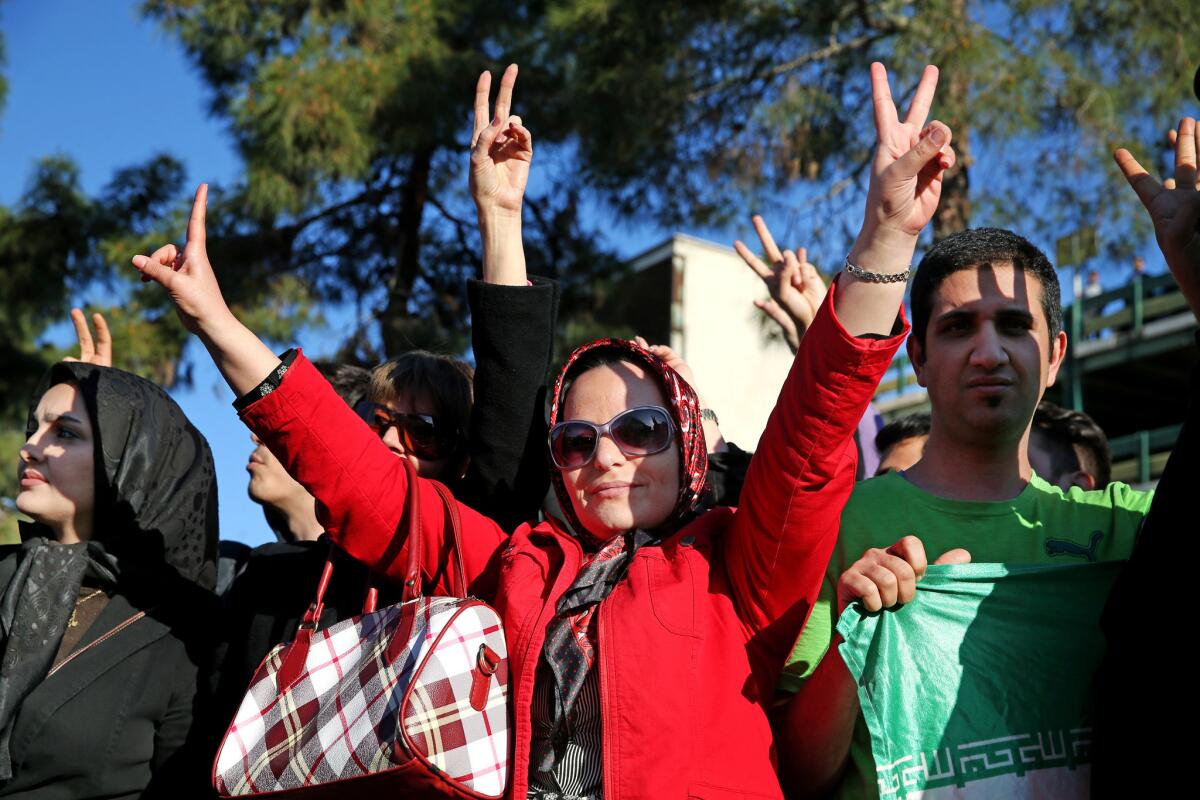Editorial: Critics of Iran deal are off-base

Critics of the preliminary agreement reached last week to place limits on Iran’s nuclear program are moving beyond complaints about the terms of the deal to raise peripheral, in some cases non-germane, objections. Some argue that the Islamic Republic doesn’t “deserve” an agreement — or the relief from sanctions that would go with it — because of its support for militants elsewhere. Israeli Prime Minister Benjamin Netanyahu contends that a condition of any deal should be that Iran recognize Israel’s right to exist.
Iran undeniably has insinuated itself in the affairs of other countries — including Lebanon, where it has long supported the Shiite militia Hezbollah — and its antipathy toward Israel is both ugly and unrelenting. It also is engaged in a proxy war with some of America’s allies, including in Yemen, and it has a close alliance with Syria’s Bashar Assad, who President Obama has said must step down. Iran remains on the U.S. State Department’s list of countries that support terrorism.
If a nuclear agreement were a reward for Iranian good behavior across the board — or if it were a clear first step toward a full rapprochement with the Islamic Republic — the critics might have a point. But that’s not what the agreement is. Rather, it is more narrowly designed to prevent Iran from developing a nuclear weapon, a goal that (if it can be achieved) would serve the interests of the whole world, including the United States.
President Obama may have himself to blame for the notion that nuclear negotiations are part of a larger effort to alter Iranian behavior. In an interview with the New York Times, he suggested that a nuclear agreement was a “potential expression” of the possibility of a new relationship between the U.S. and Iran. But speaking to NPR, Obama made it clear that, even if Iran continued its “provocative activities” in the region, “we are so much better if we have this deal in place than if we don’t.”
There is a more sophisticated version of the “linkage” argument against the deal: that even if it successfully prevented Iran from developing a nuclear weapon, it would still have the effect of subsidizing Iran’s bad behavior by removing economic sanctions. Obama responded to this argument in his interview with NPR, noting that despite economic sanctions there had been “no lessening” of Iran’s support for Hezbollah or Assad.
Promising as the framework announced last week may be, it is not a final deal. Hard bargaining remains on several contested issues. But if the result is an agreement that credibly keeps Iran from making a bomb, it shouldn’t be held hostage to other changes in Iran’s behavior. Those who insist on linking the agreement to other issues aren’t just moving the goal post; they’re changing the playing field.
Follow the Opinion section on Twitter @latimesopinion and Facebook
More to Read
A cure for the common opinion
Get thought-provoking perspectives with our weekly newsletter.
You may occasionally receive promotional content from the Los Angeles Times.










